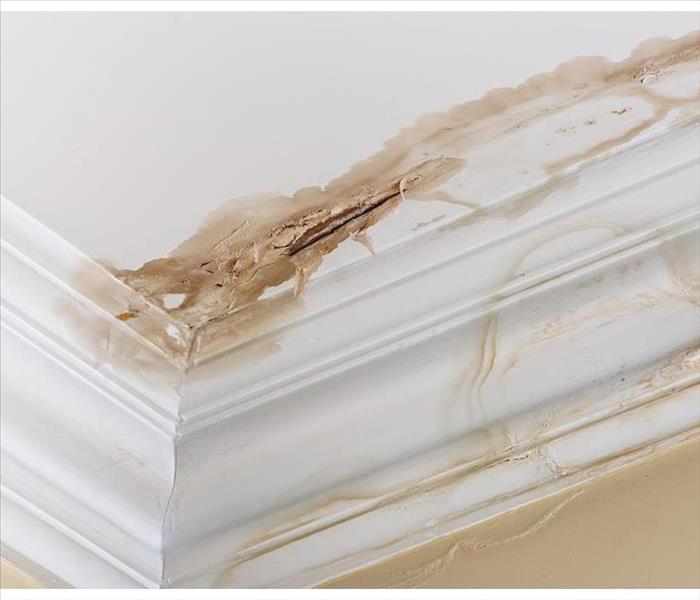How to Inspect Your Home After a Storm
1/10/2023 (Permalink)
A storm is powerful. It can knock over trees, blow out windows and doors, and cause damage to your home. If a storm is coming your way, it's important to prepare for it by securing loose objects outside the house and making sure all household members know where to go during an emergency (the basement or an interior room away from windows). It's also important to inspect your property after the storm has passed. Here are some things you should check in order to make sure your home isn't damaged:
Roof Leaks
After a storm, it's common to find your home has been damaged in some way. A roof leak is one of the most common types of damage and can cause serious problems if left unattended. If you notice any signs of a leak in your roof, take action immediately!
If you notice water stains on the ceiling, it is likely that your attic has a leak. The first step in determining whether this is true, or if the stains are simply due to condensation, is to visually inspect your attic. Look for any signs of damage or leaks such as molding or insulation that may be wet and discolored. If there are no visible signs of leakage, check around the perimeter of your roofline for drips coming from seams in shingles or flashing materials such as metal flashing or roof vents.
Look for damp insulation or interior walls. If you have discovered that there is water coming through the ceiling in one area of your home, it's time to act fast! Many homeowners don't realize how much damage can be done by even small leaks until they've soaked into their walls and insulation for several days or weeks—so if you find any signs that moisture may have gotten into these areas (such as discoloration), call someone who specializes in flood damage extraction immediately.
Damaged Siding and Gutters
Cracks in the siding are are a sign of water damage to the wood framing behind it and should be repaired immediately. A leaky roof or gutter can cause the exterior walls of your home to crack and warp from exposure to moisture. If you find any cracks in your siding, carefully remove any debris that may be blocking them so that they can dry out properly.
Leaking gutters can cause water damage to your home and personal belongings. Make sure to inspect the gutters for any damage, debris, or missing pieces. If you find any of these issues, you will need to replace the gutter system altogether or repair it before heavy rain comes again. Look for leaks at every connection point between your gutters and downspouts to ensure there are no gaps where water can seep into your attic or crawl space below. Make sure all fasteners are secure and tighten loose ones as needed; replace any missing pieces if necessary.
Damaged Windows and Screens
Windows are vulnerable to damage during a storm. If you have any broken windows or cracked glass, look for leaks and cracks around the frame of the window as well.
If your screens have been damaged by flying debris or falling branches, make sure to replace them as soon as possible. Screens that are torn can allow insects and other pests into your home and cause health issues in warmer months if left untreated.
The most important thing you can do to protect your home is to inspect it after every storm. If you notice any damage, get it fixed as soon as possible. Remember that a little bit of work now could save you from costly repairs later on down the line! If you do experience storm damage in your Tyler, TX home, SERVPRO of Tyler is here to help you get back on your feet. Give us a call!



 24/7 Emergency Service
24/7 Emergency Service
